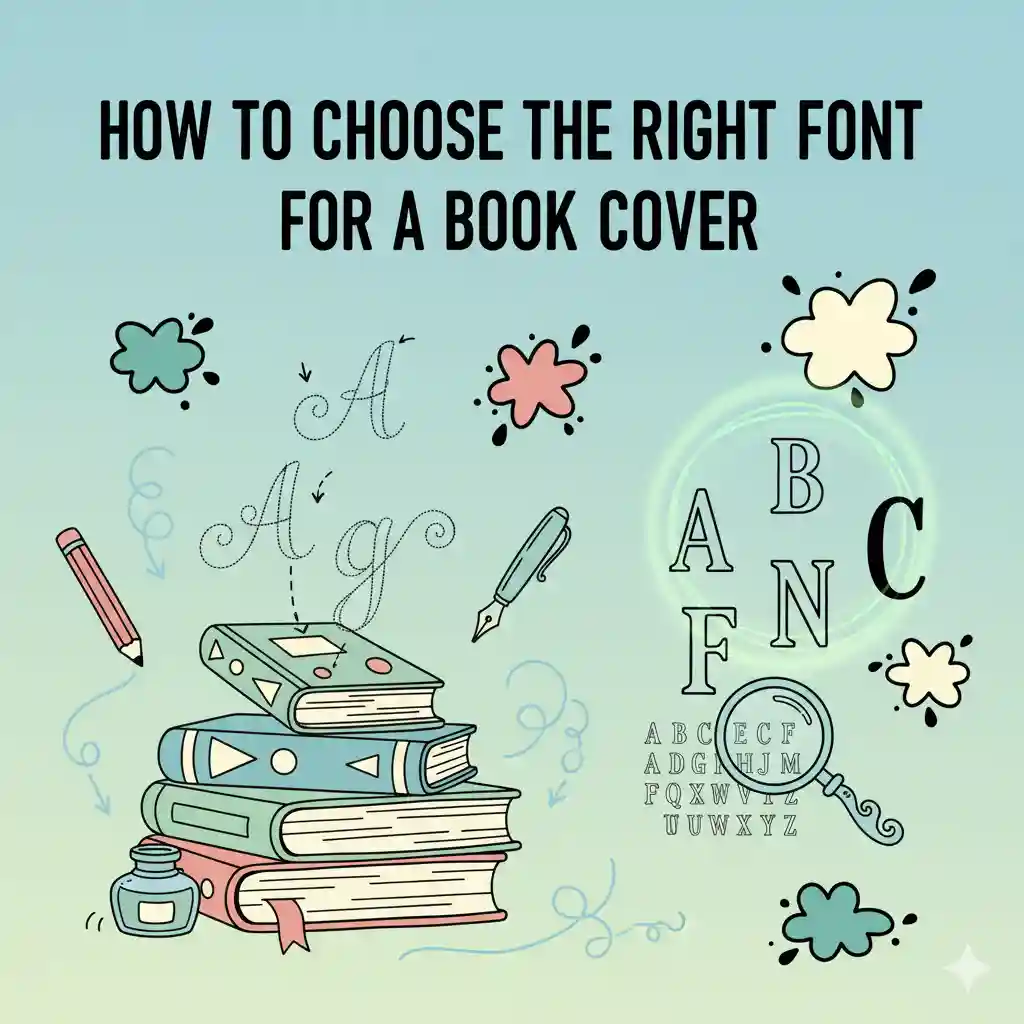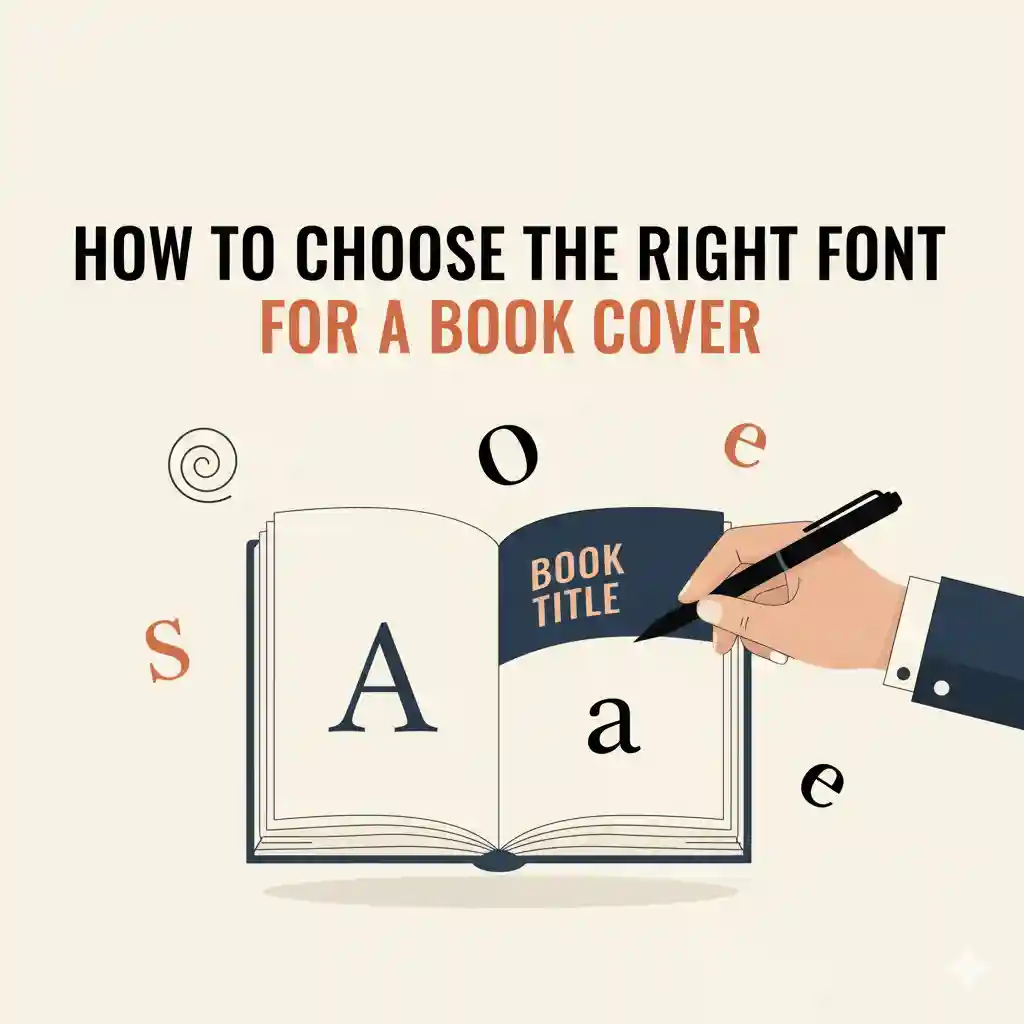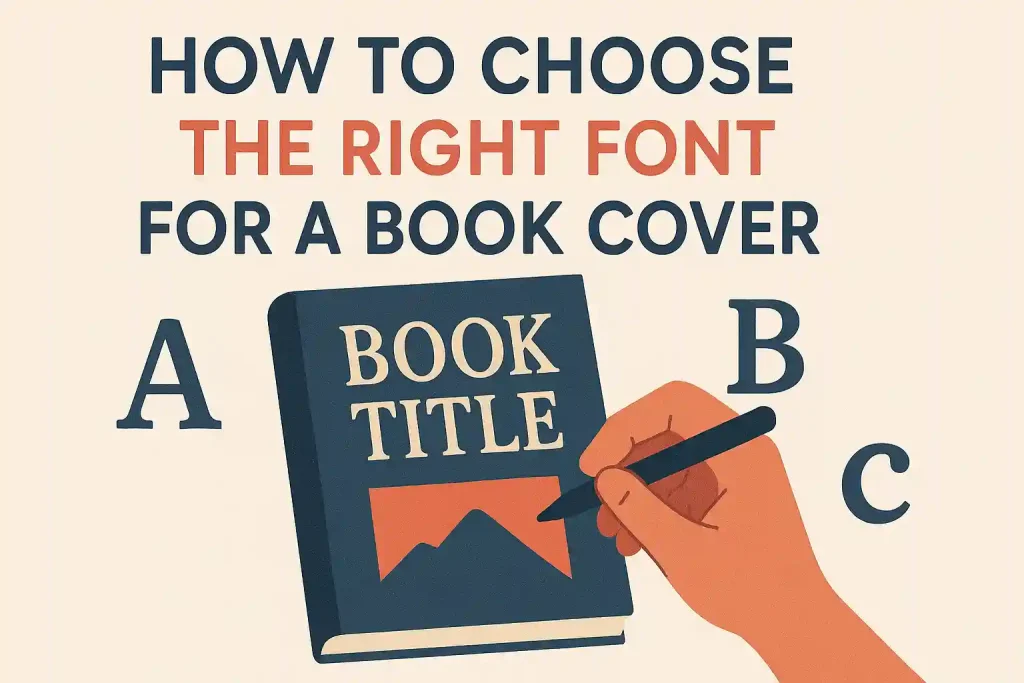how to choose the right font for a book cover
Table of Contents
- Introduction
- Why Fonts Define Your Book’s Success
- Understanding Font Personality
- Serif vs. Sans Serif: Finding the Right Tone
- Matching Fonts to Book Genres
- Balancing Style and Readability
- Pro Font Pairing Tips
- Best NoahType Fonts for Book Covers

1. Introduction
A book cover isn’t just packaging — it’s the story’s first impression. Among color, imagery, and layout, typography plays the most powerful role. The right font instantly communicates genre, tone, and professionalism.
In this guide, you’ll learn how to choose the right font for a book cover using proven design strategies and stunning examples from the NoahType font collection.
2. Why Fonts Define Your Book’s Success
Fonts do more than decorate your title — they shape perception. A serif font conveys heritage and trust, while a sans serif expresses modern simplicity.
According to Smashing Magazine’s “How To Choose A Typeface”, typefaces set the emotional and visual rhythm of a design. In book covers, the chosen font should not just look good — it should feel right for your story.
3. Understanding Font Personality
Each typeface carries its own mood and message. Before choosing one, ask yourself:
- What emotion do I want my readers to feel?
- Does the font match my genre and theme?
- Is it readable in both print and digital formats?
Examples:
- Romance novels → graceful scripts or soft serifs like Maybea Gale Display.
- Fantasy or historical fiction → elegant serifs like Aurelia Forest Serif.
- Thrillers or horror stories → gritty, bold designs like Evilo Black Metal.
- Sci-Fi and non-fiction → sleek sans serifs like Long Riding Racing.

4. Serif vs. Sans Serif: Finding the Right Tone
Two font families dominate book design:
- Serif Fonts: Traditional, intellectual, and timeless. Perfect for novels, fantasy, and historical books. Example: Aurelia Forest Serif Font.
- Sans Serif Fonts: Clean, minimalist, and modern. Ideal for self-help, business, or science fiction. Example: Long Riding Racing Font.
Combining both — a serif for the title and a sans serif for the subtitle — can create a professional contrast and visual hierarchy.
5. Matching Fonts to Book Genres
Each genre speaks its own visual language. Choosing the right typography helps your book instantly communicate its theme and attract its target audience.
| Genre | Font Style | Recommended NoahType Font |
|---|---|---|
| Romance | Script / Serif | Maybea Gale Display |
| Fantasy | Elegant Serif | Aurelia Forest Serif |
| Thriller | Bold / Distressed | Evilo Black Metal |
| Sci-Fi | Futuristic Sans | Long Riding Racing |
| Children’s Books | Playful / Handwritten | Monkey Bike Font |
The font is part of the storytelling — make sure it reflects your world and tone.
6. Balancing Style and Readability
A stylish font attracts attention, but readability keeps it. Ensure your title remains legible even when viewed as a small thumbnail (especially for online stores like Amazon).
Follow these quick rules:
- Test your cover design at multiple sizes.
- Maintain strong color contrast.
- Avoid using too many decorative swashes.
As explained in Canva’s Ultimate Guide to Font Pairing, clarity is key — typography must enhance the message, not distract from it.
7. Pro Font Pairing Tips
Mixing fonts can elevate your design when done intentionally.
Here are professional pairing strategies:
- Contrast smartly — combine a decorative title font with a clean subtitle font.
- Stick to two fonts max — more can clutter the layout.
- Establish hierarchy — title first, author name second, tagline last.
When in doubt, stay within one foundry’s collection (like NoahType’s), so all letterforms share cohesive proportions and rhythm.

8. Best NoahType Fonts for Book Covers
Elevate your next cover design with these handpicked fonts from NoahType Studio:
- Aurelia Forest Serif Font: Timeless, elegant, and perfect for literary works or fantasy novels.
- Maybea Gale Display Font: Romantic and graceful — ideal for romance covers.
- Evilo Black Metal Font: Bold, dark, and striking — great for horror or mystery stories.
- Long Riding Racing Font: Strong, modern, and perfect for thrillers or non-fiction titles.
Each NoahType font is professionally crafted to balance beauty, readability, and emotional impact — turning your book into a visual statement.
